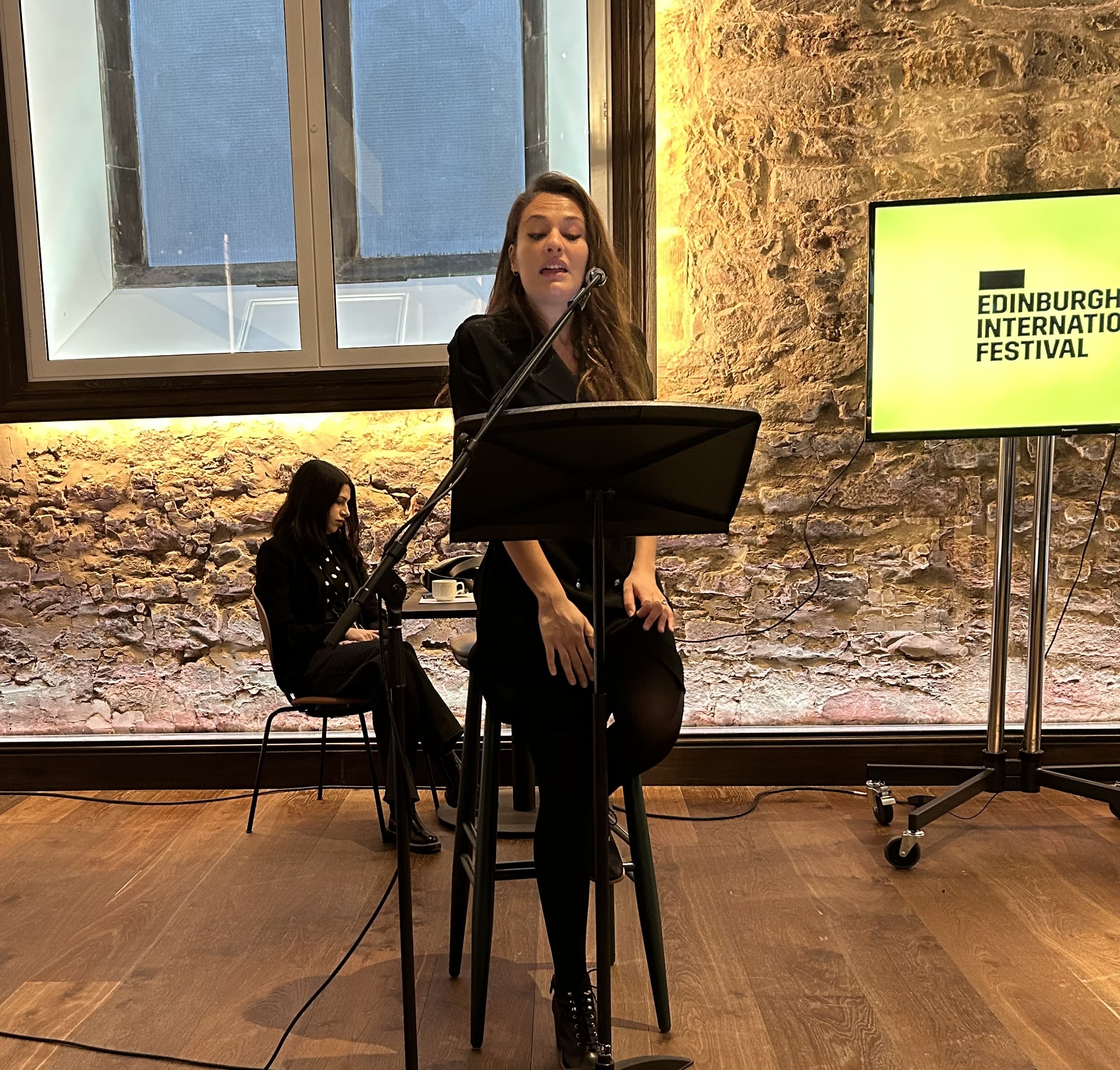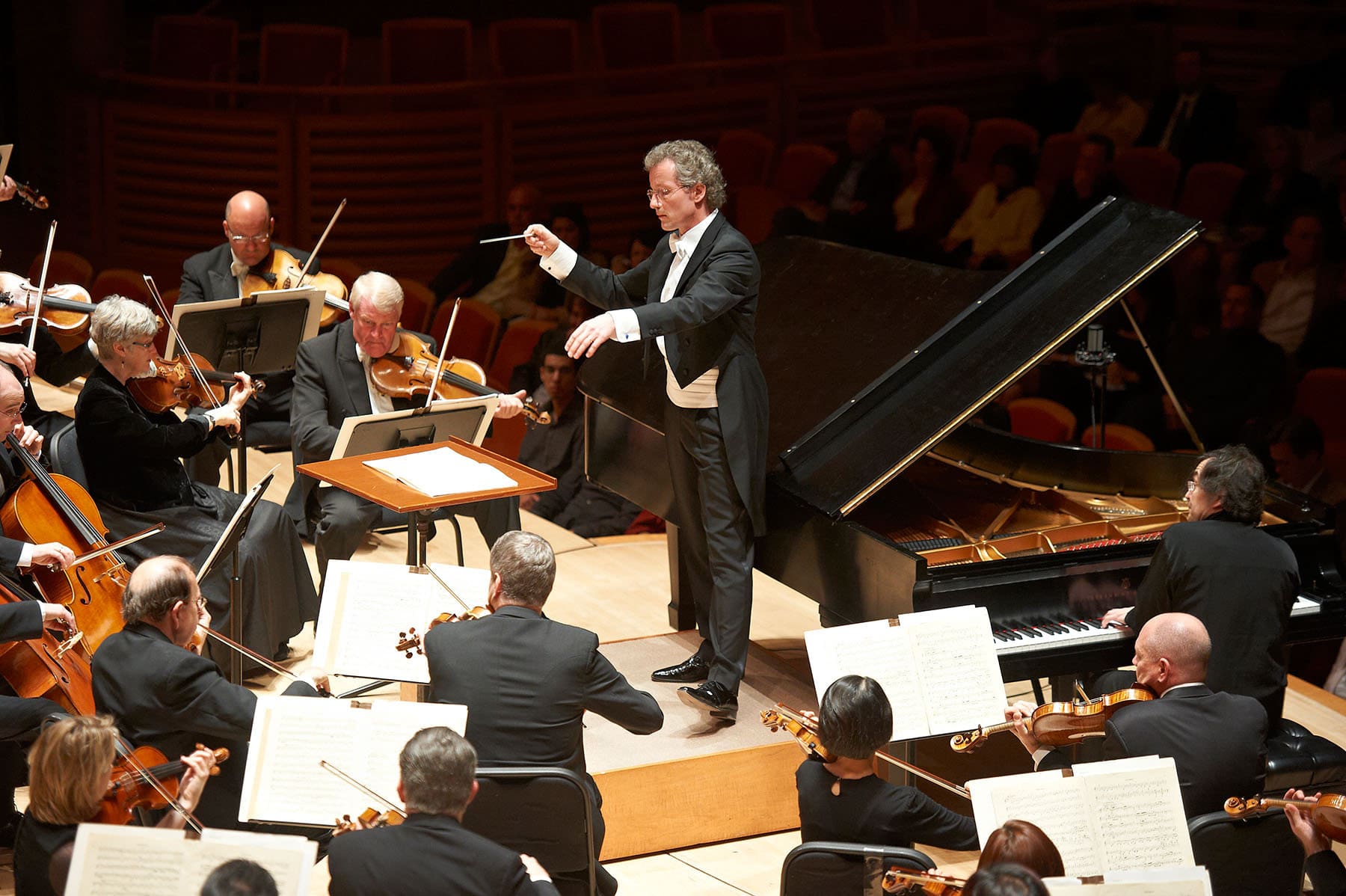Commentary: What the Edinburgh Festival lacks
NewsCommentary on today’s launch by Hugh Kerr of Edinburgh Music Review:
Edinburgh: Is a festival without opera still the Edinburgh Festival?
The Edinburgh International Festival was launched today at midday on April 24 and has many interesting features. First, it is Nicola Benedetti’s first festival as Director, and I have welcomed Nicola’s appointment as the first Scot to be the Festival Director. This is remarkable in itself since the festival was launched in 1947; Scotland still suffers from the ‘cultural cringe’, namely the belief that anything that comes from outside Scotland is superior to anything within! Nicola is also the first woman Director, another remarkable omission, and finally Nicola is the first musician to be Director, which is also to be welcomed. I can also reveal that, although she is not scheduled in the programme, she told me in a chat after the launch that “she intends to play a bit during the festival”, something we should all welcome as she is a superb musician. She also told me that this is very much her programme; she is not just a festival figurehead as some people speculated she might be. Indeed, she has been working every day in a collaborative manner with the other associate directors and it is her programme. The programme looks well planned with some interesting themes. It contains many high quality international events, but unfortunately it contains one startling omission: it has no fully staged opera for the first time ever in the Edinburgh Festival.
This fact had been trailed by Opera magazine in advance, but until we saw the programme, we couldn’t quite believe it. Could it be that a festival which was established in 1947, with Rudolph Bing, the director of Glyndebourne, becoming its first Director, putting opera centre stage in the first and subsequent festivals could happen without a staged opera? Well yes, the answer is that it can. There was a last minute flurry of interest in Barry Kosky bringing ‘The Threepenny Opera’, but as Brecht himself would tell you ‘The Threepenny Opera’ is not an opera but musical theatre. Of course the writing on the wall for opera has been there for some time. Opera has been a core element in the festival for many years with lots of glorious international performances and in the days of Brian Macmaster we would often have as many as half a dozen staged operas and a further group of concert performances. The decline began under Jonathan Mills’ direction, leading to a famous quote from Tim Ashley in the Guardian “The Edinburgh Festival can no longer be considered of international quality as far as opera is concerned”. Fergus Linehan the last Director briefly raised our hopes with a special 70th anniversary Festival where opera again took centre stage as an acknowledgement of the Festivals operatic origins, but as he told me at the time this was very much a one off exercise. Indeed in Fergus’s final programme last year we only had one staged opera, Garsington’ s ‘Russalka’, although it was very good.
Now I know opera is a very expensive business and it has suffered during the pandemic both in performance and in numbers attending. I know also the Festival is suffering from static funding which in the days of 10% inflation is effectively a cut, but I think to have a festival without any opera leaves a gaping hole at the centre of the Festival. I asked Nicola and the associate music director why they do not use Scottish Opera more; after all Scottish Opera have just premiered a superb ‘Il Trittico’, produced by one of the world’s leading opera producers, Scotland’s David McVicar. Why couldn’t this have been at the centre of the festival? After all part of the mission of the festival is to bring the best of Scottish Culture to the world. The directors told me they hoped to involve Scottish Opera more in future and they did plan to have staged opera as part of the festival programme in future. Let’s hope so!
If the above sounds negative it shouldn’t take away from what is a very interesting festival programme with a lot of outstanding musical items. The opening concert is an unusual and challenging work, Tan Dun’s ‘Buddha Passion’, though it may not provide the warm feeling of a traditional opening concert. The closing concert with Wagner, Scriabin and Rachmaninov looks more conventional, and in between there is a great series of concerts including two concert operas with Maxim Emelyanychev conducting the Scottish Chamber Orchestra in ‘The Magic Flute’ with a very good cast. Having seen Max conduct ‘The Magic Flute’ at Covent Garden recently I have no doubt this will be great fun. Somewhat more testing in stamina but of no less quality will be Edinburgh’s own Sir Donald Runnicles bringing over his company from Berlin’s Deutsche Oper for a concert of ‘Tannhäuser’ again with a very strong cast, though at 4 hours 15 minutes, it will be testing for the audience. It is also wonderful to see Gustavo Dudamel and the Simon Bolivar Orchestra back at the Festival. I was there in 2007 when they wowed the Usher Hall with their music and Venezuelan jackets.
As well as the great series of concerts and operas in the Usher Hall the Queens Hall has a fabulous series of morning concerts at 11am each day. I’d like to be at every one, but as an editor coordinating half a dozen critics it’s unlikely I’ll make it. The good news is that most of them will be available on Radio 3 – although of course it’s always better in the hall. Work is beginning on Edinburgh’s new chamber music hall which will be the base for the morning concerts in years to come, but the Queens Hall has done a great job over the last 40 years – and now has the best unigender toilets in Edinburgh!
There are of course lots of other things going on in the Festival – theatre, dance, folk music, although sadly not as much of the latter as there should be. For conversations, debates and happenings see the detailed programme from the festival published today the 24th of April. The Edinburgh Festival may be missing fully staged opera, hopefully only for this year, but it remains the biggest and best arts festival in the world in the finest city in Scotland if not the world. The Edinburgh Music Review will be covering it fully. Last year we reviewed 44 performances and what’s more got them all published within 2 days of the performances. This year we plan to cover even more, with every concert in the Usher Hall and the Queens Hall being reviewed. The Edinburgh Music Review has just been rated as one of the top online arts magazines in Scotland and during the festival is read by more than 10,000 people with many thousands more in ‘Slipped Disc’, the biggest music blog in the world with over 2 million readers. We are looking forward to it. You should be too. Get online and get your tickets soon. It promises to be memorable.
Pictured: Nicola Benedetti at today’s launch.






What it lacks is a conscience. Hugh Kerr’s naïve enthusiasm for the Simon Bolivar Orchestra was totally understandable in 2007, but it is not today. It is the flagship of a corrupt, authoritarian, abusive government and a corrupt, authoritarian, abusive music program, and if this wasn’t known in 2007, it certainly is now and has been for many years. It beggars belief that the Edinburgh Festival would support this blatant art-washing exercise and that Hugh Kerr would applaud it for doing so. The Maduro government in Venezuela will be very pleased.
Who knew communists made such superior young musicians
“Donald Runnicles bringing over his company from Berlin’s Deutsche Oper for a concert of ‘Tannhäuser’ again with a very strong cast, though at 4 hours 15 minutes, it will be testing for the audience.”
Oh, BooHoo. So sorry for Hughie.
Last time I looked, Tannhauser is an opera even though this will be a concert performance. It is after all The Edinburgh International Festival, no mention of opera. Productions are planned years ahead of actual performance and you can’t just conjure one up even from the excellent Scottish Opera. I have attended many over the years at the Festival and will go to Tannhauser and not feel patronised by Kerr who has had a lot of free publicity today from this site.
Scottish Opera certainly should be in the Festival and has presented some marvelous evenings since its first appearance in the annual programme around 55 years ago. Hugh Kerr is spot on in his description of Sir David McVicar’s absolutely superb production of Il Trittico unveiled in Glasgow last month. This was Scottish Opera back at its very best and it could have been one of the Festival highlights.
I normally spend £1000s on Edinburgh Festival tickets but not this year. Incredibly disappointing programme, and not just on the opera front. I am hoping it is an interim year between Fergus leaving and Nicola taking over, given lead-in times to book performers etc.
Having had a little time to look at the programme I give it a lukewarm 6 out of 10. A lot of contemporary music, by which I mean pop music by artists such as Alison Goldfrapp.
Not someone who needs an international festival showcase.
Some reasonable concerts but even the Queens Hall is a little hit or miss.
Never mind the lack of opera! The dance and theatre programme is tepid.
Nicola has a huge amount of support stored. Let’s hope 2024 is a marked improvement.
Such musical insight here – such writing!
“Having seen Max conduct ‘The Magic Flute’ at Covent Garden recently I have no doubt this will be great fun. Somewhat more testing in stamina but of no less quality will be Edinburgh’s own Sir Donald Runnicles bringing over his company from Berlin’s Deutsche Oper for a concert of ‘Tannhäuser’ again with a very strong cast, though at 4 hours 15 minutes, it will be testing for the audience. It is also wonderful to see Gustavo Dudamel and the Simon Bolivar Orchestra back at the Festival. I was there in 2007 when they wowed the Usher Hall with their music and Venezuelan jackets.”
The Bolivary orchestra is a PR exercise for a fraudulantly elected regime, unrecognised by more than thirty democratic countries (but it is by Putin), and that has on its hands the blood of hundreds of protestors.
Agree entirely about opera in general and Scottish Opera in particular. Does anyone remember the Ring in 2003 – was an absolute triumph and stood up extremely well in comparison to to the Rings of its better-funded peers. Regrettably, since that time the company has been in a very slow decline, for various and well-documented reasons, but despite that they can still produce brilliant and important work from time to time, such as the recent Il Trittico. As an international festival nobody is suggesting that there should be an obligation to use local artists or organisations every single year, but it’s just so obvious that Scottish Opera has been sidelined by certain previous festival directors, despite having had some compelling projects in the pipeline and which could easily have been programmed with a bit of forethought.
At least he’s not complaining about seat prices this year – yet.